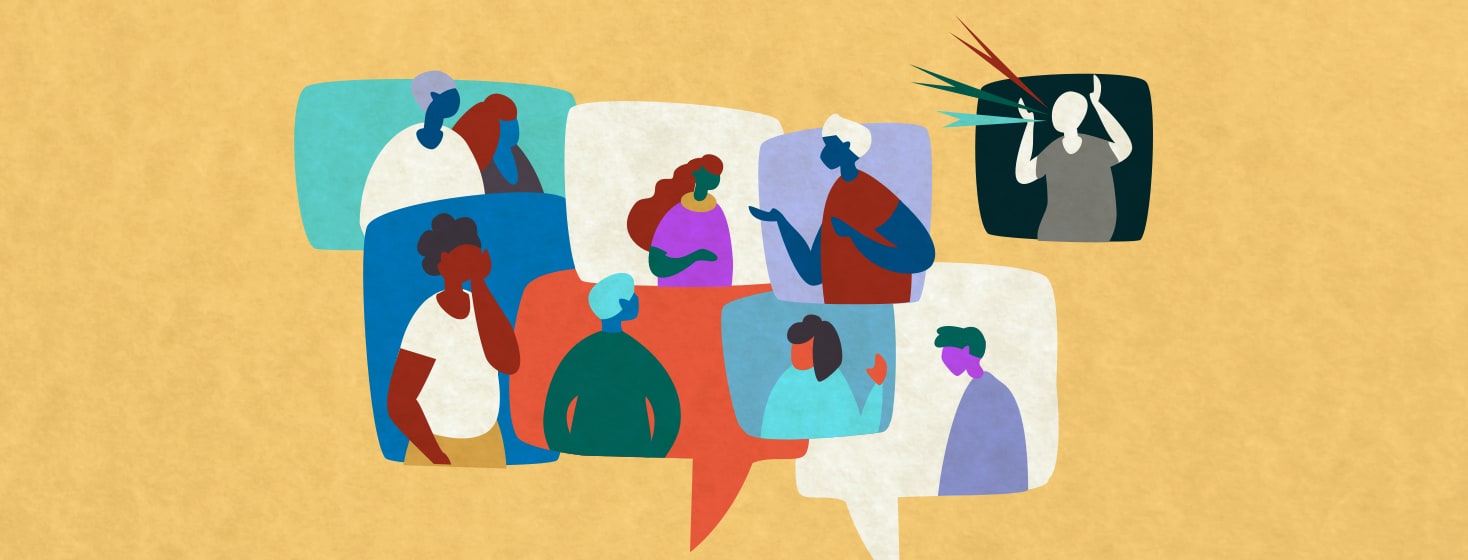Language and the Meaning of Mental Illness
Time Magazine chose Taylor Swift for 2023's "person of the year." I think that is great. She is a talented artist and a great businesswoman. But in her interview with the magazine, she made a comment that made me concerned about the future of the word "psychotic"...
Psychotic vs. psychosis
In the interview, Swift said that the first football game she attended with her boyfriend, Travis Kelce, was not their first date, and that she and Kelce are not "that psychotic." When Swift used the word, she meant they would never choose such a public way to have their first date.
Although I'm not upset with Swift for using the word psychotic in that way, I am concerned about the future of the word and its use. Psychosis is something those of us who have a mental illness may or may not have to live with, and if we do, we need to be able to talk to our doctors and others without confusing anyone about what the term means in medicine and for our treatment.
Language matters
Concerning myself with word choice and meaning may seem silly, but if we look at what has happened to the word "depression" and the word "anxiety," we will quickly see that talking about those two illnesses or symptoms no longer has the meaning it once did.
How we talk about depression
For example, depression has come to mean anything from a store not having your favorite chips, as in, "I'm so depressed that dill pickle chips are out of stock!" It can also mean feeling sad, disappointed, tired, unmotivated, and numerous other things.
The clinical definition of depression is vastly different than its widespread and wide-ranging use would suggest. In a quick search on Google, the clinical definition is a mood disorder that has to do with a loss of interest or pleasure for long periods. In other words, it is persistent, and it is a mental illness. It isn’t a fleeting feeling, and it isn't trivial.
It is severe and often requires medical intervention. It would be unusual, if not unheard of, for someone to see a doctor about feeling sad that their favorite team lost the Super Bowl. I know people love sports, but rarely would a loss by a favorite team cause a long-lasting and persistent loss of pleasure and interest in life.
Casual references to anxiety
A similar thing has happened to the word "anxiety." People use the word anxiety to mean everything from a little bit of worry or concern, such as, "I'm anxious that my battery might die on my smartphone," or things like jokingly being anxious about answering their phone or answering their door, because of "social anxiety." Don’t get me wrong, social anxiety is a genuine thing, but the way most people talk about it is not at a level that would require therapeutic or medical intervention.
I fear that watering down and changing the meaning of psychosis is going to follow the way of the words depression and anxiety. People already do say things like, "She was psychotic," to mean someone was being dramatic or maybe overly angry.
"Psychotic" vs. psychosis – we don't want confusion
I don't mind that language changes. It is a living, creative, expressive thing, and constantly evolving, but what I worry about is that those of us with the diagnosis of psychosis, anxiety, or depression will find it harder to talk about our illness and symptoms when it is so common to use those words in a way that is non-clinical and far less severe than their original or medical meanings.
Anything that makes talking about mental illness harder or more challenging to understand is negative in my view.
This or That
Do you consider yourself an advocate?
